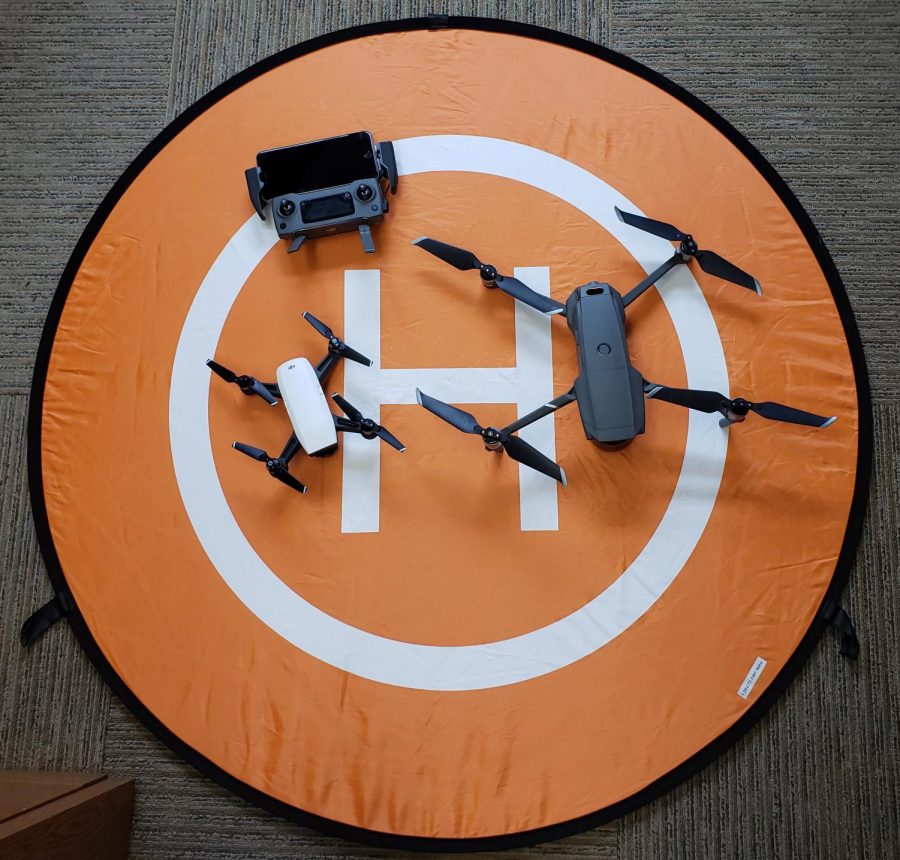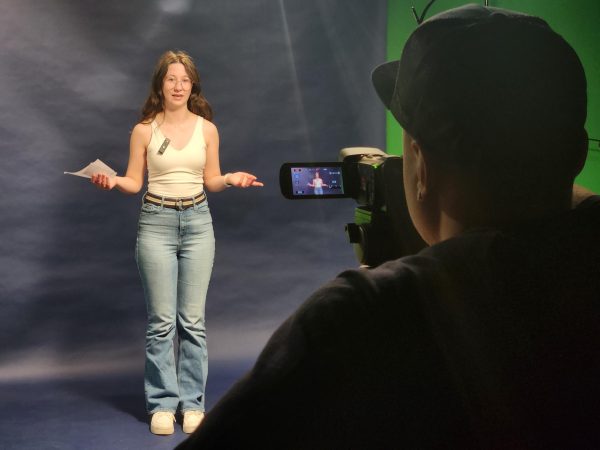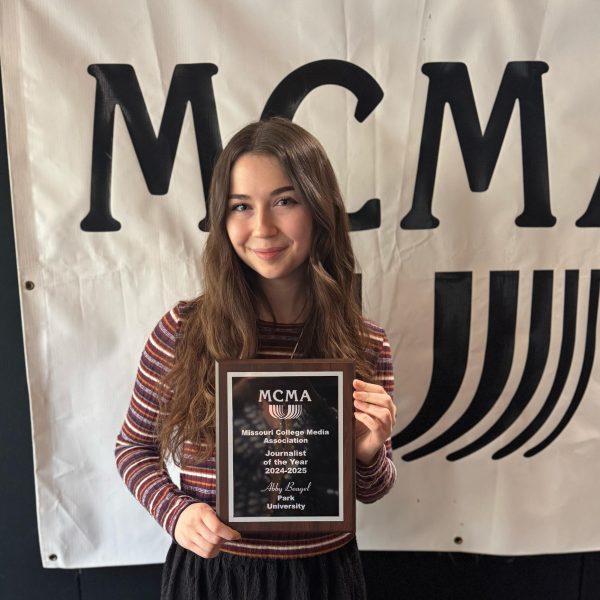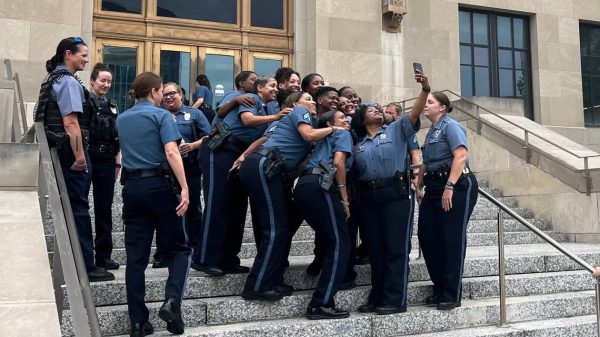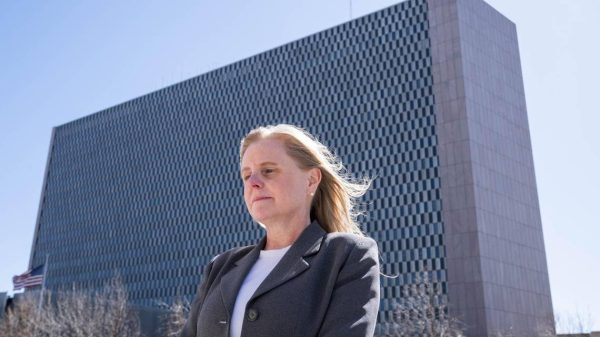Drone certification program makes landing at Park
A new FAA drone certificate program is heading toward Park University students in Fall I of 2019. It’s being called “Droneology.”
Offered through the criminal justice department, the drone certificate program offers students the chance to become FAA-certified in drone operation.
The program will feature three courses central to drone operation and a fourth elective course that will be decided by the student’s major program.
The Droneology program was created on the Parkville campus by Eugene Matthews, Ph.D., program coordinator of criminal justice, and Gregory Rose, Ph.D., director of online operations and course developer for the drone program.
“Dr. Rose and I came to think about the whole drone thing in a hallway conversation, and that’s how it got started,” Matthews said. “We started chatting about drones and he mentioned, ‘hey you know what I’ve been thinking about this drone thing too.’’’
After deciding this was something they wanted to pursue, Matthews and Rose set out on the first step in the process: finding the funding.
They decided to enter their program proposal into Park University’s Faculty Center for Innovation’s Spark Tank award.
“They do one for each year, and they award $5,000 to winning proposals,” Rose said. “So, Eugene and I and another adjunct criminal justice faculty named John Schupbach decided to enter a proposal, in which case we scaffolded the curriculum, turned it into Spark Tank, and we won a 2018 grant to develop the idea, create the courses and also some funding for some equipment.”
The development of the curriculum ended up with the central idea of a total of four courses.
“Collectively we determined that we needed maybe four courses,” Matthews said. “Then as we continued to think about how we would develop this out, we realized we shouldn’t be so stingy about it. This is something that could be used by other disciplines.”
Any discipline that adopts this certificate will be able to add any 8-week online course they deem applicable to the program.
No matter the student’s major, the certificate program will require them to take the three Droneology required courses and then an elective of their major’s choosing.
“The courses are designed to be subject-matter general,” Rose said. “So that if you’re interested in criminal justice, if you’re interested in real estate, if you’re interested in construction or if you’re interested in geology or engineering, we will have segments of those in each one of the courses.”
Although the courses will cover an array of applications, the drone focus will be on things such as piloting drones, knowing where to fly and even photography and mapping.
The first course students will need to take will be UAS 107: Commercial Drone Pilot Certification.
“UAS 107 is the certification course,” Matthews said. “That’s to prepare the student to sit for the FAA’s Part 107 Commercial Remote Pilot Certification.”
In order to commercially fly a drone, you must be licensed under Part 107 of the FAA regulations, hence the reason for this certificate program.
“It’s either a toy, or it’s a tool,” Matthews said. “If it’s a toy you are not required to have Part 107 licensing, not required to have any sort of training; you just have to be able to fly it safely and not crash and stay out of the areas you aren’t supposed to be in. On the tool part, if you receive any kind of compensation for the use of your drone, images that it’s sending back or what not, then you fall under Part 107 commercial flying.”
Many jobs are beginning to look for those able to operate drones commercially, in order to increase their efficiency.
“The FAA is currently registering 1,000 certificate tests a week,” Rose said. “So that’s the interest level that we want to tap into.”
There is a large calling for drone operators in professional fields today, where the operators are provided with drones to use. That is not the case in this program.
“For the classes, since they are online, we are calling them BYOD or Bring Your Own Drone,” Rose said. “We have studied some basic qualifications for a drone that you could purchase. For about $350, that’s the minimum that we believe you could purchase a drone that has semiprofessional characteristics.”
In this program, the cost of materials is fairly average. The FAA certification exam costs $150, and it is recommended to spend at least $350 for the drone for the program.
These costs are offset by zero textbook costs, as all the course materials for the three required classes are provided to the student free of charge.
In the future, Droneology at Park looks to take an extracurricular route as well.
“That could even include student clubs,” Rose said. “Which we are planning on doing in the future. Both public ones and Park student-only ones. In order to gain interest and help educate the public in general because there is still a lot of misinformation about drones.”
This drone certification program was created to educate not only students but the public on what drones have to offer and what they can do.
Droneology is an emerging field that is gaining momentum. The Park University Droneology program looks to get ahead of this trend, to educate students and give them the tools they need to become FAA-certified remote drone pilots.
“We think the demand is only going to increase,” Rose said. “The usages are multiple and still emerging.”
To learn more about Droneology at Park University, visit the (UAS) Drone Certificate page on the Park University website.
Your donation will support the student journalists of Park University. Your contribution will allow us to cover our annual website hosting costs, freeing up other funds for equipment, printing and training.



